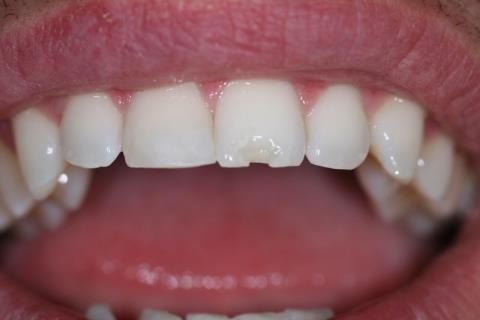Autism spectrum disorder is a condition that impairs behavior, language, cognition, and the ability to communicate and interact with others. Autism can be detected from the age of 2, so parents need to know the signs of the disease to handle it promptly.
Children with autism spectrum disorder have difficulty communicating, have abnormal behaviors, and become more self-centered. So what are the signs to recognize that a child has an autism spectrum disorder? How is the disease diagnosed and treated?
What is autism spectrum disorder?
 Autism spectrum disorder is a complex disorder of brain development
Autism spectrum disorder is a complex disorder of brain development
Autism spectrum disorders are a group of complex disorders of brain development. This is a mental disorder of the neurodevelopmental type with very early manifestations, 75% of children with autism before 3 years old. People with autism do not develop normally in some areas, have difficulty learning, communicating with others. Autism spectrum disorder is also known by other names:
- Autism : This is a condition in which children have difficulty communicating and being with others, children have abnormal, repetitive behaviors and limited attention.
- Asperger's syndrome: This is a mild form of autism in which children still have good language skills but still have difficulty with others around them, with unusual interest and behavior.
- Childhood disintegrative disorder: This is a rare disorder in which children develop normally but suddenly develop symptoms of autism around the age of 3 to 4 years.
Signs that a child has an autism spectrum disorder?
 Signs that your child is autistic
Signs that your child is autistic
There are many single diagnoses of autism spectrum disorders such as: Common Autism, Asperger's syndrome, and pervasive developmental disorder not otherwise specified (PDD-NOS). Children with autism have early symptoms, so parents need to monitor their children's changes to have early treatment methods. Parents can observe their children through:
About Emotions:
- Children do not like to make eye contact when they are young, do not look directly at the opposite person when talking.
- Unable to recognize strangers and acquaintances.
- Do not show love, cling to mother, do not follow mother, do not see children happy when their parents return.
- At school, they do not like to play with friends, do not realize that the teacher is scolding or praising.
About Language:
- Children often speak monotonous sounds, lack of intonation, often mumble to themselves, imitate other people's words, sometimes pronounce meaningless and repetitive.
- Do not know how to imitate adults to follow, say.
- Do not express to others understand your needs. Adults must suggest and guide many times before children can follow.
About behavior:
- Children love to play with only one thing, seeing and paying attention to details rather than how the object is used.
- Children hate change: Anger, panic when the furniture in the house is changed or the mother changes her hairstyle...
- Excessive or poor response to external stimuli.
- Children ignore what their parents say but enjoy the small sounds they make themselves, such as scratching or tapping objects in their ears.
- Children may not sleep, sleep less at night, but still full of energy during the day.
- Fearless when in danger, even self-injury such as: Hit the head, scratch, pull hair ...
- Often there are abnormal movements such as slowing down due to decreased muscle tone or abnormal movements, for example: frowning, waving, shaking, head banging...
How is autism spectrum disorder diagnosed?
 Take your child to see a pediatrician for a diagnosis and treatment of autism
Take your child to see a pediatrician for a diagnosis and treatment of autism
When you see your child showing these symptoms, take him to the pediatrician. At this time, the doctor will check the motor development at the age milestones during regular visits. The job of the parents is to share and tell the doctor about the abnormal symptoms the child is having. Do not subjectively ignore the problems, because in the role of a caregiver and close to the child every day, the first person who can detect abnormal behavior is the parent. Don't assume your child is just "a little slow" and will quickly "catch up" with other children. Early detection and treatment can help improve symptoms, which in turn increases a child's ability to develop and learn new skills.
Pediatricians will now need parents to provide information about:
- Baby's symptoms.
- Baby's medical history.
- Family history.
- Medications the child is taking.
When the doctor has the above information, the doctor will check to see if there is a medical condition, the medication being taken is causing these symptoms or not. Your baby may be ordered to have tests or pictures taken to look for the cause of the symptoms. Because autism spectrum disorder can be inherited, your doctor will want to screen other children in your family.
In the event that your child may have an autism spectrum disorder, your doctor will refer you to specialists in psychology, psychiatry, phonology and neurology. These are people with knowledge of the subject, so they can examine more deeply, thereby giving you treatment advice for your child.
How is autism treated?
There is no single best treatment for every child with autism spectrum disorder. Before deciding on any treatment method, find out as much information as possible, and also need to be based on the needs of the child.
A team of industry experts will assess the situation and develop a joint treatment plan. Find and consult services to help you and your child more convenient in the treatment process.
The above are signs of autism spectrum disorder that parents need to know to handle promptly if their child has it. In all cases, treatment through play and learning activities at home with your child is essential. So, parents, don't forget to spend time with your loved ones!
 Autism spectrum disorder is a complex disorder of brain development
Autism spectrum disorder is a complex disorder of brain development Signs that your child is autistic
Signs that your child is autistic Take your child to see a pediatrician for a diagnosis and treatment of autism
Take your child to see a pediatrician for a diagnosis and treatment of autism





